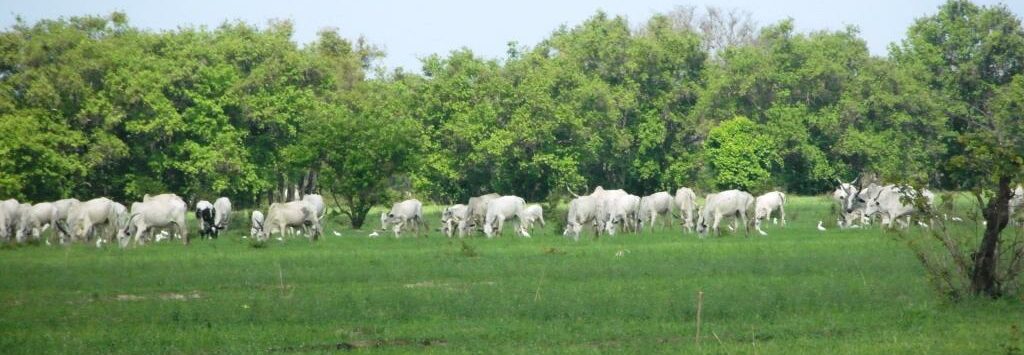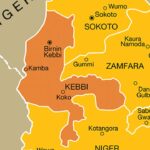Against the backdrop of the tension which has gripped Nigeria recently, courtesy of the raging killer-herdsmen crises, lies the question of rectitude in the country’s disposition towards one of the root causes of the problem.
This is the syndrome of historical farmers-herdsmen clashes.
- What bandits commanders told me in Zamfara forests Sheikh Gumi
- Top bandits commander, Buharin Daji, to lay down arms soon Matawalle
As divisive as several issues have historically proved to be in Nigeria’s political space, hardly has any of them dragged the country to the brink of another civil war more than this offshoot of the farmers-herdsmen clashes, which in turn has lasted for several decades, even without attracting obvious and readily available, pragmatic final solutions to the various manifestations of the syndrome. At the last count, efforts in various parts of the country to counter the heinous criminality and devastating losses in lives of Nigerians as associated with the killer herdsmen, have been upgrading to actual physical resistance towards open grazing by the cattle herdsmen in several parts of the countr. It had started from the South-West with the situation spreading to the South-East, and in all likelihood may have also spread to the South-South. Yet this is a situation that would have been unnecessary and even reversible simply by allowing pragmatism to condition public policy disposition towards it, by the federal and respective state governments.
In the ongoing cascade of responses to the turbulence have featured a harvest of reactions including knee jerk gestures from actors in various parts of the country, with many of such outcomes betraying the parochial mindset of their sources. For instance the South West is presently at war with itself as the status quo is contending with a renegade lobby championed by one Sunday Igboho who with his followers are demanding the exit of the Fulani from Yorubaland peacefully, or be forced out. The South Western drama has lent impetus to some South Eastern co-travelers who also demand the exit of Fulani herdsmen from Ibo land. Not to be outdone in this playout of ethnic irredentism taken too far, are some voices from the North who are also baying for blood by expressing utterances that are ratcheting up the incendiary state of affairs across the country. Perhaps one of the most significant was the suggestion by the Governor of Kano State Abdullahi Umar Ganduje that northern herders should no more take cattle from the North to the South!
While out of courtesy this column is not inclined to see any comment in an unduly pejorative context, several factors betray the disposition of Nigeria’s leadership community towards cattle rearing as that of a fool who is thirsty in the abundance of water. Among the numerous investment options in agriculture, animal husbandry remains one of the most profitable, and even in this area cattle breeding and processing qualifies easily as a top of the line profit avenue. It is not for nothing that the late great premier of Northern Nigeria Sir Ahmadu Bello had the foresight as far back as 1961 to identify the profitability in cattle husbandry and established the Bauchi Meat Products Company Limited in order to drive economic development in the country’s North East geopolitical zone. As established from inception, the firm was to engage in the production of the entire range of animal products including corned beef. Today the company still exists but runs as a mere shadow of the outfit as envisaged by its founding father Ahmadu Bello.
For inspiration, the great Ahmadu Bello tapped from the time tested and proven benefits associated with commercial business of cattle breeding especially with reference to how over time, it had changed the economic fortunes of countries which had led the world in meat production such as the US, Brazil, Argentina and Canada, to name a few. Incidentally the contribution of beef industry to driving the economies of those countries had only improved over time. Hence for instance in 2019 alone beef production generated $76.4 billion to the US and employed millions of workers. This is even as dominates the global market with 94.4 million heads of cattle. In Brazil with 232 heads of cattle as the world leader in cattle population it produced 10.5 million tonnes in 2020 out of which it exported 2.5 million tonnes. All these feats were achieved without the Nigerian type of farmer herdsmen-conflict. Meanwhile Nigeria with less than 15 million cattle produced less than 350,000 tonnes of beef with a negligible quantity exported. It is therefore without doubt that the progressive state of affairs in these leading beef producing countries puts a lie to the Nigerian model and practice of managing cattle rearing business.
Incidentally, the deplorable state of affairs with cattle business in Nigeria is a matter that had occupied the centre stage in the national discourse for some time, with the accelerated development of ranching as the consensus panacea, AND which only requires political will to be implemented. It would seem that while political will for moving the cattle business forward is lacking in the government, it may also be lacking the political will to prevent the ruinous escalation of inter-ethnic conflicts among Nigeria’s constituent nationalities.
In the context of the ongoing cycle of face-offs between various ethnic groups and the cattle herdsmen it is clear that so much water had passed under the bridge to dictate a paradigm shift that will aim at two goals. Firstly it will aim at downplaying the unfortunate connotations (rightly or otherwise) of an ethnic expansionist agenda by the Fulani, which by all indications is fuelling the present spate of crises. Secondly, there should be an accentuation and promotion of the attractive business potentials in the cattle rearing sub-sector as the way to go henceforth. That is if the government wants Nigeria to remain as one indivisible and indissoluble piece as envisaged by the Constitution.
In another vein, the fact remains that whereas cattle breeding had been traditionally dominated by Fulani as a business activity, it is nevertheless not restricted to them intrinsically. It is simply a straight forward business venture that provides standard conditions of entry for any business investor. It does not require any divine acumen or mandate to venture into. In fact, in several parts of the country, not a few Fulani herders have integrated non-Fulanis into the trade with encouraging outcomes. This is just as the present state of turbulence has the prospects of transforming the country’s meat production subsector by vitiating to a large extent the preponderance of the Fulani herdsmen. In all likelihood, the future may already be here with us when Nigerians will see Yoruba herdsmen, Ibo herdsmen and even Ijaw herdsmen competing favourably with the traditional Fulani herdsmen. A parallel situation is that of illegal refining of stolen crude oil that commenced in the Niger Delta but is now prevalent across the country where the crude oil is transported to by tankers for the illicit activity. Indeed there are illegal crude oil refining activity from Sokoto to Calabar and Maiduguri to Lagos. Whoever doubts this story does not understand Nigerians. Indeed, beyond the politically motivated ethnic profiling that benefits only the parochial interests of politicians, ordinary Nigerians from any corner of the country are the same in exploiting any loophole that offers itself as an avenue for making money, legally or otherwise.
One snag in the cattle matter however is the fear that the new dispensation may increase the discomfort of the common man on the street, in the form of doubling or tripling the table price of ‘suya’ and other beef delicacies, which have so far remained among the few consolations for the country’s hard pressed citizens, in the face of unrelenting and deepening decadence in governance.

 Join Daily Trust WhatsApp Community For Quick Access To News and Happenings Around You.
Join Daily Trust WhatsApp Community For Quick Access To News and Happenings Around You.


